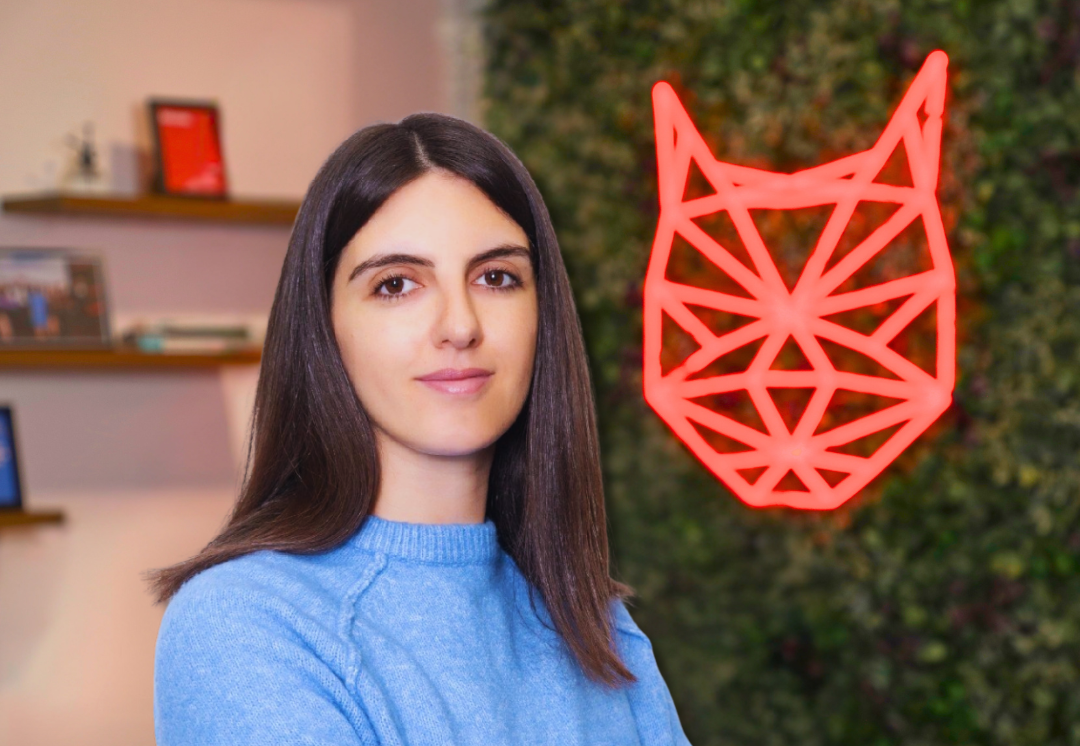Whilst it is common knowledge that optimising content for selected keywords is a fantastic way to improve your website ranking in search engines, what many people neglect to consider is that overusing keywords can actually lead to very negative consequences. This can affect the overall success of your campaign. Let’s get right to it and find out whether there is a downside of having too many keywords.
Using too many keywords is bad for SEO because it negatively affects user experience and can seriously harm your site’s rankings. Not only will the content be difficult to read for users but search engines actually now penalise sites who use keyword stuffing to increase their rankings.
Keep reading to find out why keyword stuffing is bad for SEO and how to avoid this when optimising your content.

Yes. Using too many keywords throughout your site is bad for user experience and can seriously harm your site’s rankings. This is primarily because content packed with keywords is simply unreadable and unhelpful to users. On top of this, search engines now favour pages that create a great experience for users. The content itself is actually helpful and relevant.
When optimising web pages for search engines like Google, we know that it can be tempting to take the easy way out, using all kinds of manipulation tactics to quickly get higher rankings. You may even be thinking,
‘If search engines use keywords to match pages with search queries, why not stuff as many of them as possible onto a single page so that it ranks for several highly searchable keywords?’
Unfortunately, using keywords throughout content does not work this way. In fact, using black hat SEO tactics such as keyword stuffing do you way more harm than good. Google dislikes these types of tactics because they focus on beating the search engine algorithm rather than creating a greater user experience. So, what is keyword stuffing?
Using too many keywords in SEO is also known as keyword stuffing. According to Google’s guidelines, the definition of keyword stuffing is, in simple terms,
‘The practice of excessively filling a web page with keywords with the ultimate goal of gaming the search giant’s ranking system.’
Keyword stuffing can be broken down into two distinct categories: visible and invisible.
Users are likely to spot keyword stuffing and become frustrated by it, even if they are not strictly aware of what you are doing. This is because the content will likely be difficult and clunky to read. More often than not, content brimmed with keywords feels more like a weird sales pitch rather than an informative, user-orientated article.
Google does not want to see overly-optimised sites that focus more on SEO tricks rather than creating the types of content users really want to see. If you are overusing keywords in your content, chances are, you’ll likely get penalised by Google. This may result in your page decreasing in ranking or it may be removed altogether. All in all, I think we can agree that keyword stuffing is not a good long-term SEO strategy.
To read more about keyword stuffing, take a look at our insightful article, ‘How To Avoid Keyword Stuffing – Keyword Best Practices’.
Before we move onto another downside of using too many keywords, we thought it might be beneficial to outline the history of keyword stuffing over time. Not long ago, keyword stuffing wasn’t just acceptable, it was actually commonplace. This is because Google hadn’t yet gotten wise enough to understand the detrimental impact of excessive SEO techniques. However, this all changed in 2012 when the Penguin update was rolled out. As part of this upgrade, Google began to penalise sites for measures such as keyword stuffing because it detracts from the user experience. After all, who wants to read a single keyword 15 times in the span of three paragraphs?
Since this update was implemented, keyword stuffing has virtually disappeared, however, that doesn’t mean that you aren’t still overusing certain terms. While you may not be cramming keywords into your webpages, you may still be using too many for the size of content on the page.

Keyword cannibalisation is an SEO issue that occurs when several pages on a site target the same keywords and serve the same purpose, and in doing so harm each other’s search engine rankings. This is because the search engine will not be able to determine which page is the most relevant result for associated queries.
Keyword cannibalisation can happen when you:
It’s important to understand that keyword cannibalisation in SEO is not simply caused by mentioning the same keyword on multiple pages. If the search intent is different, you can actually target a keyword on multiple pages. For example, a blog outlining what cyber security means will not cannibalise with a service page selling your cyber security services because they both have a different search intent.
Keyword cannibalisation is bad for SEO because it:
Before you begin fixing your cannibalisation issues, pick one preferred page (primary page) for each affected keyword and make this preference clear to Google so that it knows which to rank highest. The best way to do this depends on the circumstances.
Here are some of the most common solutions we see day to day:

In order to optimise your content to increase search engine rankings, keywords need to be used moderately, like most things in life. To avoid keyword stuffing and cannibalisation, focus on creating high-quality content that engages your audience. Remember to write for humans, not for search engines, and conduct thorough keyword research to identify relevant keywords and phrases for your text. According to Google, you should
‘Focus on creating useful, information-rich content that uses keywords appropriately and in context.’
Once you’ve gathered your keywords, use them strategically in your content, but avoid overusing them. Use synonyms and related terms to diversify your content and avoid repetition. Providing genuine value to your audience is the best way to improve your search engine rankings without resorting to keyword stuffing. It’s also important to structure your content in a way that provides more context for search engines. For example, using HTML heading tags (H1, H2, H3 etc) to break up your content and make it more readable. Try adding target keywords to your headers and other technical aspects of your site (meta tags and alt tags) but only where it makes sense to do so.
Here are some of our tip tips when it comes to optimising a web page for a keyword:

If you’re keen to learn more about using keywords throughout your site, get in touch with our friendly team at Wildcat Digital. We can help you create top-quality content that targets an appropriate amount of keywords. This will help your pages achieve higher rankings and generate more traffic back to your site. We understand how important it is to provide information that users are looking for which is why we carry out extensive keyword research before beginning any content.
To arrange your free consultation, don’t hesitate to get in touch with us. Alternatively, if you have any SEO-related questions, why not check out our Knowledge Base? Our experts are here to help.
Each page on your website should have a cohesive content and keyword strategy. The keyword should be relevant to your content and something that users are searching for (you’ll want to consider search volume here). Alongside your seed (primary) keyword, try to include other relevant keywords throughout your page.
When you’re trying to decide whether your content is optimised enough or too much, keyword density will be the metric you want to look out for. Try to keep your keyword density below 5%, keeping it in the 2-4% range is the typical sweet spot that Google and readers like to see. When it comes to how many keywords you should be targeting, it depends on the length of the content. Trying to fit fifteen keywords into a 400-word press release isn’t going to go over so well, but adding the same number to a 2,000 word blog post would be fine.
You want to avoid using the same keyword on multiple pages as it can cause cannibalisation issues. Essentially, this means that search engines will have difficulty determining which of your pages is better related to that keyword, preventing either page from ranking as highly as you’d like. Each page of your site should have a dedicated seed keyword and related keywords that it focuses on. Our top tip for tracking and improving your use of keywords is to create a keyword map. This will help you track which keywords you’ve used, which you plan on using next and how well they rank.

Founder
Our founder, Will Hitchmough, worked at a number of high profile Sheffield Digital Agencies before founding Wildcat Digital in 2018. He brings an extensive knowledge of all things related to SEO, PPC and Paid Social, as well as an expert knowledge of digital strategy.
Digital Marketing can be a minefield for many businesses, with many agencies ready to take your money without knowing how to deliver results. I founded Wildcat Digital to deliver digital success to businesses with smaller budgets in a transparent way.

Head of Growth
Rich joined us in May 2024 to head up our growth team. With years of experience helping other agencies to grow, Rich joins us at an exciting time as Wildcat is working on a five-year plan to become one of the biggest agencies in the UK.
Outside of work, Rich is a father to three children, which keeps him very busy! He’s also recently started running again to keep fit and loves a bit of DIY.

Head of Digital
Sarah joined Wildcat in January 2025, bringing over seven years of SEO expertise to the team. With a background in Fashion Communication and Promotion, she has worked both in-house and at agencies, covering a range of digital marketing specialisms before focusing on SEO.
Passionate about all things search, Sarah thrives on helping brands grow their online presence.
Outside of work, she enjoys walking her dog, running, and shopping for vintage clothing.

Office Manager
Amelia joined Wildcat Digital in January 2025, bringing extensive experience in HR, Health & Safety, Facilities Management and IT Support. Previously an Operations Manager at The University of Sheffield, she has a strong background in creating efficient and well-organized work environments.
Specialising in HR, Health & Safety, and Facilities Management, Amelia ensures the Wildcat Digital team has the resources and support needed to thrive. Whether managing office operations, maintaining compliance, or fostering a positive workplace culture, she keeps everything running smoothly.
Outside of work, Amelia loves trying new things, traveling, camping, and walking. She also enjoys socialising and exploring new places with friends and family. Her adventurous spirit and proactive approach make her a valued member of the team.

Client Success Coordinator
Siena joined us in 2023 with a background in sales and digital marketing. She leads on client relationships across the company, ensuring that our customers are happy throughout their journey with us, from their initial consultation through to onboarding and beyond.
Outside of work, Siena enjoys travelling and getting stuck into the local culture. She likes to make the most of her experiences and particularly enjoys watching sunrises and sunsets from beautiful locations around the world.

SEO Account Director
Paul has a strong background in SEO, having previously founded and ran a successful eCommerce business, as well as running a personal blog that achieves an average of 17K users per month. Paul’s knowledge of SEO is extensive, with a strong emphasis on client handling and technical SEO.
Outside of work, Paul enjoys spending time with his family and staying active with weight lifting and combat sports.

Team Lead & Technical SEO Account Manager
With a degree in Computer Science and SEO experience dating back to 2017, Dariusz has a wide range of SEO skills and knowledge. His specialist knowledge of Technical SEO has firmly landed him the title of Wildcat’s Technical Wizard, and he has recently taken on the responsibility of Team Leader for the Panthers Team.
In his spare time, Dariusz loves hiking, experimenting and trying new coffees and loves learning new things. He is currently learning more about CRO and AI and how this could benefit our clients.

Team Lead & Senior SEO Account Manager
With a background in sales, Molly is a natural Account Manager, brilliantly handling any issues that come her way. Having joined us as a Digital Marketing Executive, and working part-time through her final year of University, Molly is a shining example of how hard work pays off. She is now an SEO Account Manager with a particular interest in Content and Client Management.
In her spare time, Molly loves to get out in nature, hiking and exploring the Peak District. She also loves cooking and likes to unwind with a bit of yoga.

PPC Team Leader
Libby joined Wildcat in 2021 as our first PPC hire. With a degree in Digital Media Production, a Master’s in Digital Media Management and previous experience in Social Media Management, Libby hit the ground running and has since climbed the ranks to Senior PPC Account Manager and has a particular interest in the eCommerce sector.
Outside of work, Libby likes gaming, and cooking and likes to keep active by lifting weights.

Senior SEO Account Manager
With a degree in Film and TV production, and a varied career history, Jamie made the move to marketing with a Masters degree in Digital Media Management. He has since worked in SEO at Agencies across Sheffield, before joining Wildcat and working his way up to SEO Account Manager. Jamie has a particular interest in backlinks and Digital PR and has recently gained a client a valuable backlink from Forbes!
In his spare time, Jamie is an avid foodie and loves trying new restaurants and cuisines. He also loves to travel and spent a year travelling to Australia after university.

SEO Account Manager
Jasmine joined Wildcat in 2022 with a strong background in SEO and Account Management. At the time, she was finishing up a Level 4 Apprenticeship in Digital Marketing from the Chartered Institute of Marketing, and has since worked her way up to SEO Account Manager. Jasmine excels at content writing and promotion, and particularly enjoys finding creative ways to join the dots on multi-channel campaigns.
In her spare time, Jasmine volunteers at a charity, helping combat loneliness & social isolation experienced by older neighbours. Outside of Wildcat, she owns a catering company, Savery Grazing, creating delicious grazing tables & platters for a range of events. She also loves skiing and exploring the Peak District.

SEO Account Manager
Thea has a wealth of experience in SEO, having previously worked for other Digital Marketing Agencies in Sheffield. She has a particular interest and skills in Technical SEO, but is more than willing to get stuck in and give anything a go.
Outside of work, Thea spends most of her time with her children, but also loves reading, photography and gardening.

PPC Account Manager
Masilda joined the Wildcat team in October 2024 with over seven years of experience in digital marketing. She specialises in Google Ads, but is also certified in Google Analytics, YouTube Ads, Google Ads for Ecommerce and Apple Search Ads. She has extensive expertise in performance marketing, display advertising, online lead generation and market planning.
In her free time, Masilda likes staying active, cooking, trying new restaurants and exploring new places.

Senior SEO Executive
After spending ten years managing businesses, restaurants, cafes and event spaces across Sheffield, Jon decided to change careers and joined Wildcat as an SEO Executive in 2022. He especially enjoys the client management side of the job, helping them to understand digital marketing and ways in which they can build their business’s presence online.
Outside of work, Jon likes to keep fit with running, badminton and football, and also loves music.

Senior SEO Executive
Andy joined Wildcat in 2023 after starting his digital marketing career in-house for a local Sheffield company. Since joining, he has developed a strong interest in Technical SEO and has strong skills in Account Management.
Outside of work, Andy loves music and plays in a couple of bands. He also enjoys rock climbing, cycling, photography and good food.

Senior SEO Executive
Kezia joined us in July 2024 after completing a CIM Certificate in Digital Marketing and gaining experience in Content SEO at another Sheffield agency.
In her spare time, Kezia loves to get outdoors, bouldering, hiking and travelling.

Senior PPC Executive
Alex joined Wildcat Digital in December 2024 as a Senior PPC Executive, bringing a strong background in Paid Media, Paid Social, and Programmatic advertising. With a degree in Business & Marketing and Google Ads certifications, she has the expertise to craft high-performing campaigns that drive results.
Before joining Wildcat Digital, Alex worked at two leading agencies in Leeds, honing her skills across various digital advertising platforms. Her analytical mindset and strategic approach help businesses maximize their online presence and advertising budgets.
Outside of work, Alex enjoys spending time with her dog, Lola, and going on walks with her dog walking group. She’s also a keen footballer and loves playing five-a-side whenever she gets the chance. Her enthusiasm and team spirit make him a great addition to the Wildcat Digital team.

SEO Executive
Amy joined Wildcat in 2024 with a background in journalism, having worked as a News Editor and Editor-in-Chief at The Sheffield Tab. She is naturally interested in Content SEO and research, so will no doubt prove to be a content power-house.
In her spare time, Amy loves watching crime shows, listening to music and hanging out with her dog, Eddie!

June 30, 2025
Welcome to June’s digital marketing news roundup. There’s been major changes in both PPC and SEO, especially regarding AI. We’ll…
May 30, 2025
If you’ve ever tried searching for a local business or service, the chances are you’ve come across a Google map…

May 20, 2025
Welcome to this month’s digital marketing news roundup! As ever the digital landscape continues to transform at lightning speed, so…